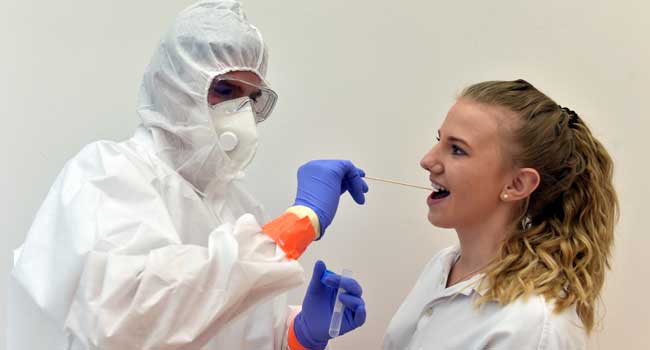
German labs are now able to carry out almost 900,000 tests a week for the novel coronavirus, officials said on Wednesday, as they plan to widen testing among health workers.
“Today, we have a theoretically possible capacity of almost 900,000 tests (per week) in Germany already, as long as the materials for these tests are available,” Health Minister Jens Spahn told reporters in Berlin.
Roughly 470,000 tests were carried out last week, suggesting there is a spare capacity that could help prevent outbreaks among medical staff at hospitals and care homes.
“I think it’s very, very important to see that with what we’ve achieved together in recent weeks, including through the strong lockdown, the biggest risk for an outbreak is in healthcare,” Spahn said.
Tests should be carried out “as comprehensively and preventively as possible” among staff, including in care homes, he said.
Federal law and testing guidelines from the Robert Koch Institute (RKI) for disease control were being adjusted to reflect these aims, Spahn added.
The RKI estimates that the infection or reproduction rate of the coronavirus in Germany is presently around 0.9, meaning 10 infected people infect nine others.
Such low figures have encouraged federal and regional officials to loosen some elements of the lockdown, including opening smaller shops from last week and sending some pupils back to school from next week.
But new rules including a nationwide requirement to wear a facemask in shops and on public transport have entered into force, in an attempt to prevent a second wave.
AFP




